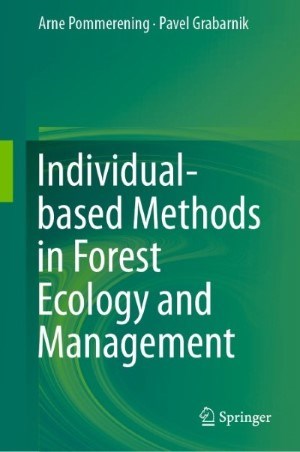Facts:
Link to the book on Springer website.
Link to course Individual-based methods in forest ecology and management at BOKU.

Individual-based forest ecology and management is an interdisciplinary research field with a focus on how the individual behaviour of plants contributes to the formation of spatial patterns that evolve through time. Key to this research is a strict bottom-up approach where the shaping and characteristics of plant communities are mostly the result of interactions between plants and between plants and humans.
The book "Individual-based Methods in Forest Ecology and Management", written by Arne Pommerening (Professor in Mathematical Statistics Applied to Forest Sciences at SLU) and Pavel Grabarnik (Professor of Mathematical Modelling in Ecology at Pushchino University in Russia), integrates three main fields of forest ecology and management, i.e. tree/plant interactions, biometry of plant growth and human behaviour in forests.
The overarching theme of the book is individual-based analysis and modelling where the emphasis is placed on statistical interactions between plants. As a result a large part of the book is dedicated to point process statistics and individual-based modelling but goes beyond this by including growth rate statistics and voting behaviour of raters in forest management as well. Deliberately and undoubtedly applied from the point of view of mathematical statistics, the book offers a theoretical view of ecology and forest science and tries to bridge both worlds.
This autumn Arne Pommerening will be give a course on the book at BOKU University, Vienna (Austria). The course covers the concepts and methods of individual-based research in forest ecology and management with emphasis on interpreting and communicating results.
Link to the book on Springer website.
Link to course Individual-based methods in forest ecology and management at BOKU.